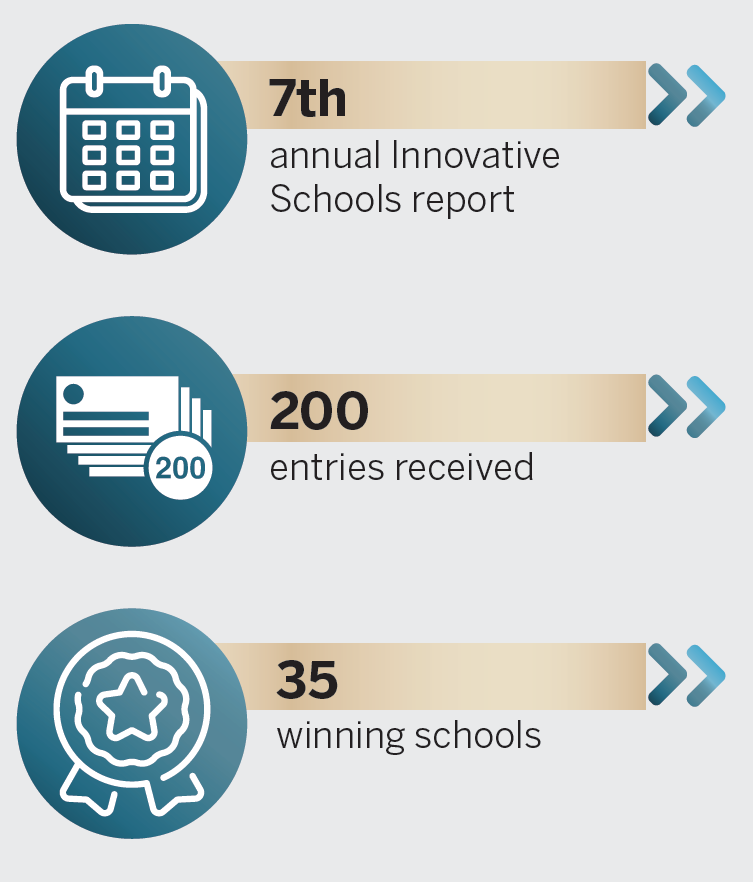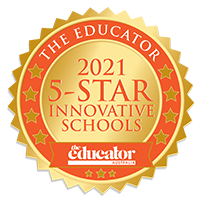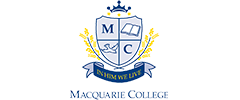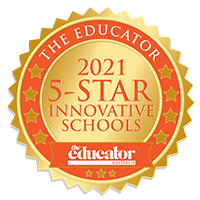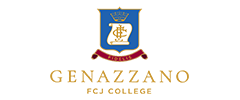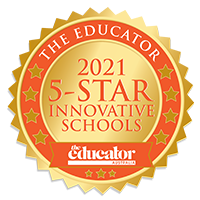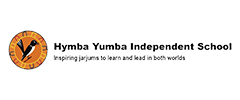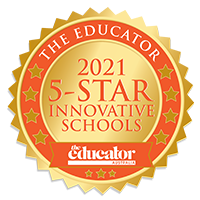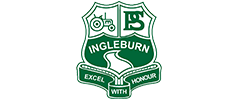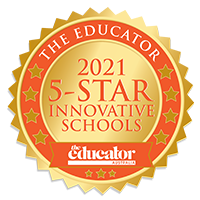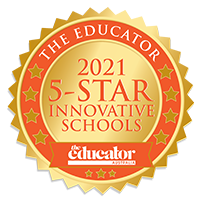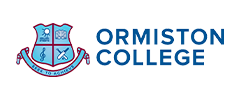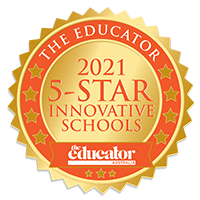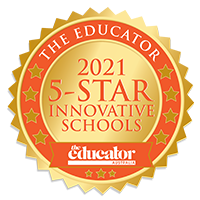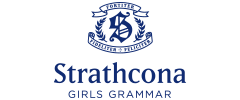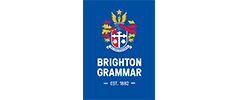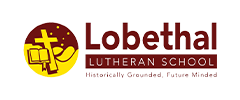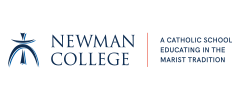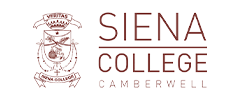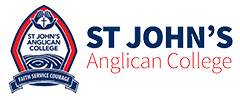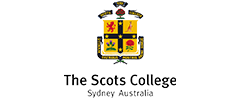- K/12
- Higher Education
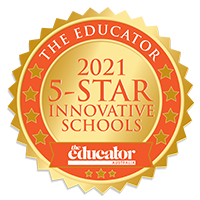
5-Star Innovative Schools 2021
Jump to winners | Jump to methodology | View PDF
NEW DIRECTIONS IN LEARNING
Australia’s schools are on an exciting journey of transformation. Whether they’re taking an imaginative approach to pandemic-enforced restrictions or continuing along a long-term path of change, The Educator’s 5-Star Innovative Schools prove that innovation isn’t solely about improving immediate academic outcomes. It’s also aimed at equipping their students with the ability to thrive in the modern world; setting them on a path of lifelong learning; nurturing tomorrow’s leaders; and developing caring, responsible citizens with the critical thinking skills needed to solve real-world problems.
Schools are reimagining everything from the physical environment and the subjects taught, to the way education is delivered and how students interact with one another, their teachers and the wider world.
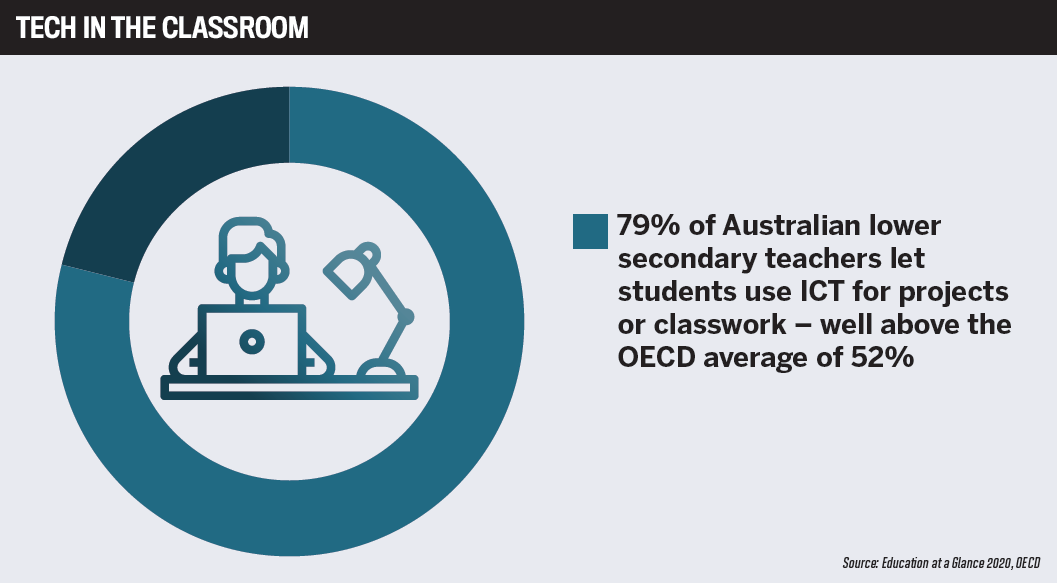
A well-rounded education
Hymba Yumba Independent School in Queensland applies a holistic approach to learning, focusing not only on formal education but also on the cultural, physical, emotional and psychological wellbeing of students.
“Over the past 12 months, HYIS has continued to transform into an innovative, exciting and admirable First Nations School of Excellence where the opportunities for our jarjums are endless,” says the school in its submission.
“With education, technology, opportunity, and culture all in mind, our dedicated teachers, who are encouraged to think outside the box, have integrated HYIS into a 1:1 Microsoft school, created and embedded multiple programs such as Dog Therapy and Dadirri (Indigenous meditation), daily yarning circles as well as incredible co-curricular programs. Our Bunji and Tidda groups allow our jarjums to meet and learn in traditional ways, with special guests to share knowledge and important cultural experiences that allow jarjums to connect to their cultural identity.”
A theme common to the Innovative Schools was empowering students to drive their own learning. At Prospect North Primary School in SA, the ‘Kids Teach STEM’ program requires students to organise conferences for neighbouring schools, and emphasises how to increase student agency in learning through innovative practices. One of the tasks involved students from disadvantaged schools collaborating and interviewing local STEM professionals to build an online library of videos. This has meant opportunities for targeted groups such as girls, EAL/D learners and Indigenous students to become confident speakers, role models and high-level STEM learners and teachers.
Macquarie College in NSW introduced an MCX program – a hands-on approach that emphasises design thinking – which gives students the autonomy to choose their learning projects. A junior school design lab was built in 2019, allowing the MCX program to be rolled out to Years 3–6 students.
“While students have considerable agency in their learning at the College, the MCX program also includes explicit teaching – particularly around safety, tool usage, design thinking and other topics as they arise,” says principal Rohan Deanshaw. “This allows for engagement and efficient learning, no matter the age group – and there is considerable mixing. Giving students a choice means they are personally invested in a great outcome. The MCX program is not graded or judged. Students demonstrate learning and achievement to wide audiences through public showings, but there is no chasing of an ‘A’ grade or anything similar. They are there because they want to be.”
Preparation for a challenging world
Equipping students with the ability to solve real-world problems is also a priority for the Innovative Schools.
Brighton Grammar School in Victoria offers students the chance to nurture their social and philanthropic entrepreneurship. Through the school’s house system, each student is aligned with a community service initiative – from fundraising for sleeping bags for the homeless to organising a clothing recycling drive. A key initiative has been the ‘BGS Keep Cup’, the brainchild of Year 9 students passionate about reducing the school’s carbon footprint.
“The ‘BGS Keep Cup’ is now a popular item among students, parents and staff alike. This project allows students to follow the process from beginning to end, including design, production and marketing strategies,” says Anna Ladas, director of service.
“Schools are the right setting to introduce young people to these programs. It helps them to develop a different set of skills they can take with them through life, encourages problem-solving and design thinking, and how these can be applied to real-life situations and improve the lives of people who need it most. It exposes them to different social, cultural and environmental settings, and provides them with a better understanding of their personal life goals.
“There has been a direct correlation between improved wellbeing outcomes at the school, as students identify more as young change-makers, and enhanced student engagement and stronger academic results.”
All the Innovative Schools arm students with skills and knowledge to set them up for success in modern society, often forming partnerships to give students real-life experience.
Genazzano FCJ College in Victoria engages in transformative learning that “inspires, fosters core values, ignites passions and shapes the hearts and minds of the learner as a liberating and lifelong pursuit”, says Catherine Brandon, Director of the Genazzano Institute of Learning & Brain Sciences.
Genazzano has four new Centres of Excellence: Global Enterprises, Innovation and Technology, Sports Development, and Creative Industries. Working with experts and industry partners, teachers have developed programs that take learners beyond the conventional classroom and curriculum.
The ‘Studio Beyond’ programs have a practical experience, folio or mini-internship component to promote employability. These enable students to build skills, confidence and experience in music composition, computing, technical stage production, sport psychology, event planning and podcasting. Brandon notes the importance of nurturing in students the traits needed to navigate a rapidly evolving world.
“Resilience, adaptability, agency and inclusive mindsets must be key components of a forward-looking curriculum that includes a focus on complex competencies and character strengths to pave the way for learners to embrace the opportunities and negotiate the challenges of fast-evolving futures,” she says.
“We need to equip our learners with authentic experiences that foster the capacity to analyse, innovate, solve problems and collaborate so they can head into the future with confidence and optimism.”
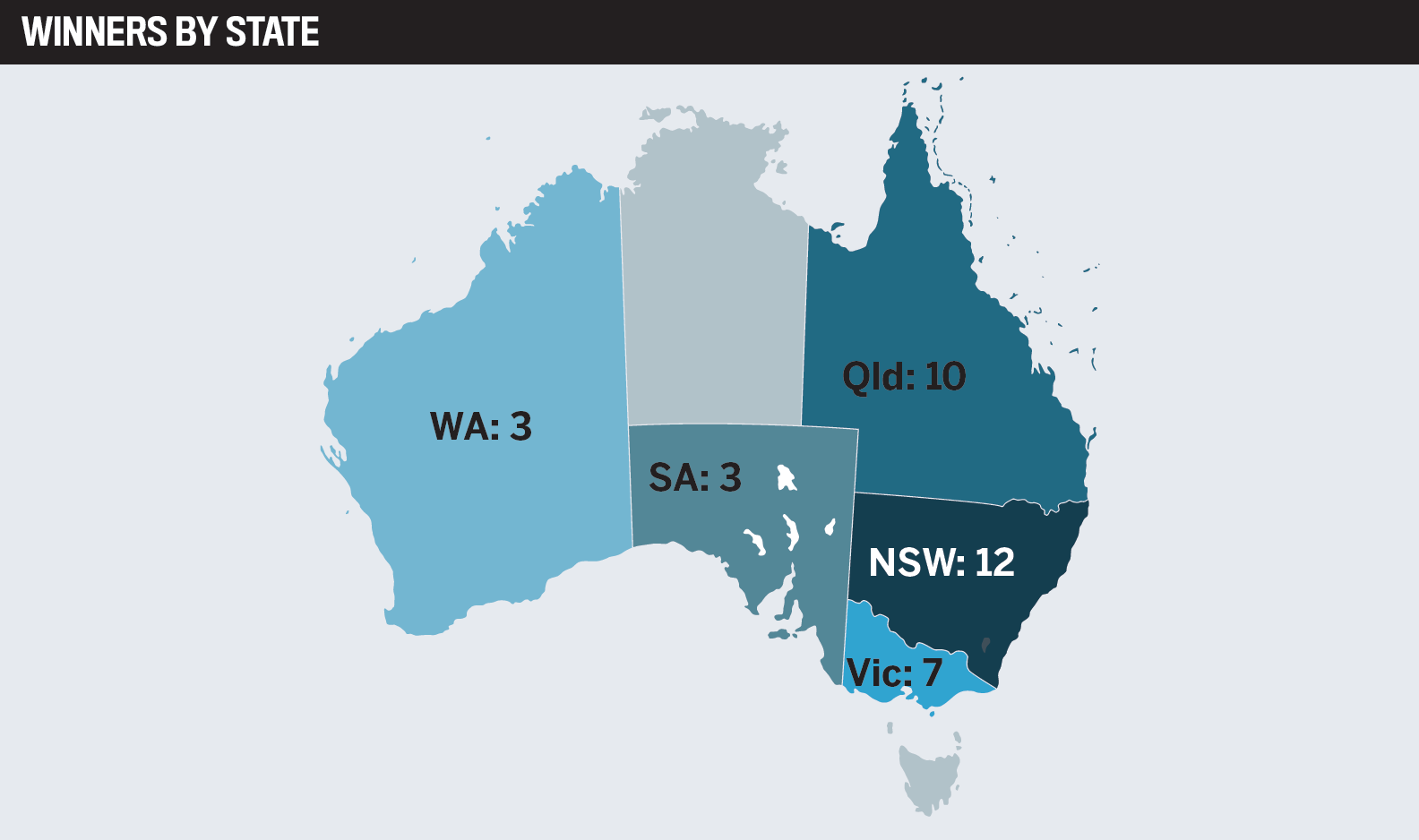
Technology and teaching strategies
Many schools are harnessing technology to better understand the student experience. At Chaffey Secondary College, Victoria – where 25% of students are ESL and 25% indigenous – a Verso Learning online check-in tool enables teachers to collect instant student feedback. This includes how they experience the lesson, their understanding of the learning goals, what they need help with, and how they feel about their learning. Students also report on the teaching strategies that work for them.
“This unique source of data provides teachers the ‘aha’ moments’ to make the necessary adjustments and improvements to future lessons to improve student outcomes by the inclusion of student voice,” says the school’s submission.
Faith Lutheran College in Queensland is adopting a revolutionary approach to learning spaces – and showing this can be achieved on a budget. “By monitoring light, carbon dioxide, temperature and humidity, we have designed an innovative environment that optimises student wellbeing and ultimately learning outcomes,” says Jodi Blackwell, head of junior school.
“When the carbon dioxide levels are below 1,000 ppm, we avoid midday slumps in learning. This was achieved by introducing living plants into the classroom – thanks to ‘bring your own plant’ days – to increase oxygen levels, along with regularly allowing fresh air into the learning space.”
Junior school classrooms have been crafted to allow for movement during learning, which increases blood flow and student engagement. The ultimate effect on learning outcomes, however, has derived from classrooms being an extension of the home environment. “This has resulted in our students feeling as though they belong in their space and wanting to come to school each day,” says Blackwell.
Transformation on a tight budget comes down to designing with purpose, and coming up with creative themes and ideas, she says. “We have even used textured wallpaper, such as brick, to create a different feel within a room, and have worked with local artists to transform old external walls into murals that inspire students and bring an old space to life.”
By overcoming challenges, thinking ingeniously, and breaking new ground in learning approaches, the Innovative Schools are ensuring the best possible outcomes for their students – now and into the future.
5-Star Innovative Schools
- Canterbury College
- Chaffey Secondary College
- Haileybury
- Immanuel College
- Macquarie Fields High School
- Marsden State High School
- Methodist Ladies’ College
- Saint Stephen’s College
- Southport State High Independent Public School
- St Andrew’s Anglican College
- St Andrew’s Catholic Primary School
- St Anthony’s Clovelly
- Tamborine Mountain State School
- Templestowe College
Methodology
Over June and July 2021, The Educator invited schools across Australia to participate in the publication’s 5-Star Innovative School awards. Now in its seventh year, this report recognises the schools at the forefront of change and innovation. Entries were open to all educational professionals who believe their school is pioneering a new direction in education. From teaching approaches to learning spaces and curriculum design, the report looks at schools reshaping the future of education. By the end of the judging process, the entries were narrowed down to the country’s most forward-thinking schools, which make up The Educator’s 5-Star Innovative Schools 2021 list.
